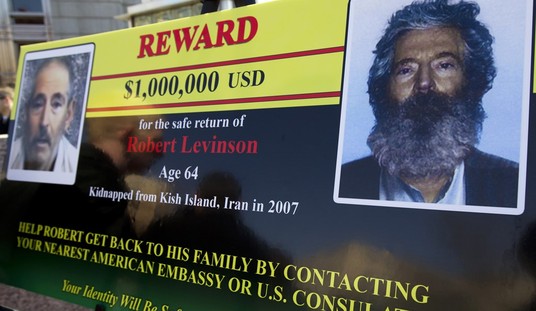It's a bit of a shock to a lot of folks when they realize how much of the United States' land is owned by the federal government; technically, by the taxpayers. As of this writing, that number stands at about 620 million acres, or 27 percent of the 2.27 billion acres of land in the United States. 92 percent of that land is in 12 western states, and here in Alaska, the federal government owns a whopping 222,666,580 - over 60 percent of the land in the state. As far as percentages of the total go, Nevada, Utah, and Idaho have us beat, though, with 80, 68, and 61 percent, respectively.
That's a lot of public land. Now, bear in mind that much of this land is available for recreational use. I make use of National Forest, BLM, and state land all the time, for hunting, fishing, camping, or just woods-bumming. So do millions of other people. We also extract resources from those lands: Timber, oil, gas, and more.
Now, though, there are calls for Washington to sell some or all of these lands. There are arguments to be made for this; up to a point.
Senator Mike Lee has been making waves recently with his support of new potential legislation that would mandate sale of a small amount of land which is currently owned and managed by the federal government. The idea behind the proposal is to free up space for housing development in states where the federal government currently owns large shares of the land. In Senator Lee’s words, “...turning federal liabilities into taxpayer value.”
The appeals made in support of this proposed legislation correctly identify a number of key issues. For one, it is obviously true that any federally-owned land which currently serves no productive purpose would be transformed from a liability into an economic asset if its sale were to result in new productivity. It is also true that the housing market in the Western part of the country could benefit from freeing up some of the government-owned land for development. Utah—Senator Lee’s home state—has seen a continual and substantial increase in housing prices over several decades. There is little doubt that this rise in price is to some degree a result of the fact that roughly 68 percent of Utah’s land is owned by the federal government, preventing its utilization in the meeting of demand for housing in the state.
There's a problem with this proposal:
If one were to consider only these two factors—the current under-utilization of some portion of federally-controlled land together with the immediately apparent possible use case for that same land—putting the land up for sale and allowing the unseen hand of the free market to figure out how best to use it seems like a perfect solution. But the problem with the proposal is not in the idea that in a free market the voluntary exchange of this land would lead it to its most useful employment. The problem is in the implicit assertion that our market is, in fact, a free market.
That's true, and it's a factor to consider. But even if the land were sold with conditions on its use - housing or housing infrastructure only, and I would add, sales only to American citizens or American development companies - it would still have an effect of raising the inventory of lands available for housing, which would increase supply, which would have a moderating effect on prices. And while the libertarian in me wants to object, that would seem to be the way to go, if the stated goal is to increase housing inventories and not to have land bought up for other uses - or left fallow, in the hopes its prices will increase with increased demand.
That seems like not that bad of an idea.
But larger-scale sales, say, of BLM or Forest Service lands? That should be looked on with some skepticism, even if the government hasn't properly managed those lands in some places. Here's why.
Read More: California Democrats Are Using Wildfires As Cover for a Land Grab
SB 79: Sacramento’s Plot to Shove High-Rises Into Your Neighborhood — And Shut You Up About It
First, sales of that land would cut it off to recreational use altogether. If that seems like a selfish argument on my part, that's because it is. I've spent countless happy days roaming the nation's state and federal lands, from Alaska to Alabama, and want my kids and grandchildren to be able to do likewise.
Second, some argue that the revenues from such land sales could be applied to the national debt. Now that's a good argument, but for two things: 1) I have zero faith in Congress or indeed anyone in government to actually apply those revenues to the debt, and 2) Such a sale would have to be done in increments, over many years, to avoid causing a crash in land prices by dumping millions of acres on the market at once. That makes it even less likely that any revenues would go anywhere but into the budget, to be spent.
At present, these public lands are a vital natural resource. If anything, we should be expanding the public's access to them; they belong to us, after all. Better that, than to have them dumped in a scheme that would end up with politicians doing more of what they already do too well - buying votes with endless government spending.
In a little over three weeks, spruce grouse season opens here in Alaska. I plan to make use of some of Alaska's millions of acres of public land to go shoot a few birds. I want my grandsons to be able to do the same thing. If that's selfish - I prefer to think of it as enlightened self-interest - then so be it.














